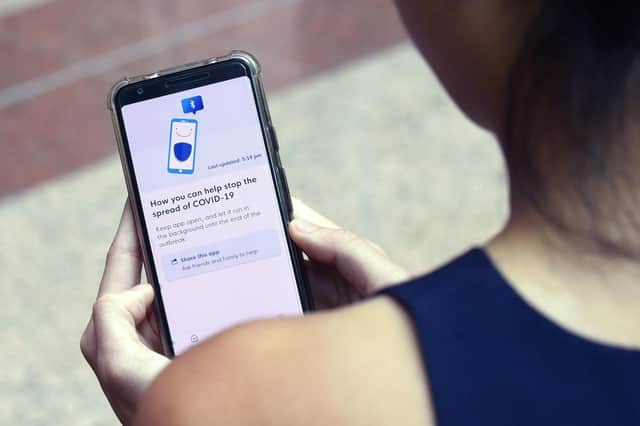Digital exclusion is not just a problem for the elderly – Alastair Stewart


Digital innovation has formed a massive part of getting people back to pubs and restaurants. But has digital acceleration gone too fast, and is it at risk of isolating people at the very time everyone should feel included?
The danger lies in the new emphasis on digital transactions that unintentionally exclude people. Until now, most ‘gadgets’ were opt-in fads. Now a trip out is centred on QR codes and mobile phones to order food and settle the bill.
Advertisement
Hide AdAdvertisement
Hide AdThe leap has been a giant one in a short period. It’s anecdotal to presume that it’s older people who can’t work smart technology. All demographics need to get used to the new norms, mores and expectations that go with this accelerated digital culture. But we’re forgetting that digital inclusiveness has been a challenge for years, and it won’t be solved overnight just because we need it to be.
Already there’s a burgeoning passiveness that implies you’re at fault if you don’t know how to do conduct yourself digitally. It seems to come from both a mixture of staff and fellow guests in places that want you in, safe and out again. Somehow you’re not doing your bit to tackle Covid-19 if you fumble with your phone or complain it’s out of power, out of signal or just plain not working. It’s begun to prompt the same response as saying you drive everywhere and don’t recycle. Not knowing how to do something is not the same as flouting the rules. Digital diktats will isolate people. We need to carefully reflect on how to safely deploy the expectations of technology with the demands it imposes. Passively making customers feel awkward for not knowing how to order on their phone is not only bad business, it’s arrogant. Not knowing how to use your mobile to order a meal is not the same as intransigently refusing to wear a mask.
Conversely, there are still takeout deliveries in the city that only accept cash payments. Such is their right. Yet how can they claim equality of access when there are people confined to their homes, who enjoy a treat like everyone else, but who can’t leave to get to a cash machine. There are a plethora of reasons why they might not be able to get out (including a rather obvious one), and not expanding a primary payment system seems particularly careless.
It’s extremely dangerous and unproductive in times such as these to assemble a post-Covid economy predicated on ‘most people’.
Saying that ‘most people’ have a phone is as moot as ‘most people’ have cash to hand in their house. Just because tech is available does not make those who don’t understand it Luddites. As a society, we were already at a sensitive stage of public digital deployment before Covid-19. Nothing has changed, and the perception ‘everyone’ is online and ‘everyone’ knows how to log into a restaurant’s Wifi is misguided.
Every place of business and every project needs to ensure they have access alternatives readily available for people. Digital community consultations for planning projects, for example, are executed best when they have a robust digital component with clear alternatives for paper copies of exhibition boards and feedback forms if preferred.
The same must be true for not only processes but outlook. Now is a difficult time to take an attitude if someone is struggling. In the scramble to get back to normal, it’s just possible we’ve overlooked how fast we’ve gone. As a society, and as an economy, we work best when we work together for each other.
Alastair Stewart is a freelance writer and public affairs consultant. Read more from Alastair at www.agjstewart.com and follow him on Twitter @agjstewart
A message from the Editor:
Advertisement
Hide AdAdvertisement
Hide AdThank you for reading this article on our website. While I have your attention, I also have an important request to make of you.
With the coronavirus lockdown having a major impact on many of our advertisers - and consequently the revenue we receive - we are more reliant than ever on you taking out a digital subscription.
Subscribe to scotsman.com and enjoy unlimited access to Scottish news and information online and on our app. With a digital subscription, you can read more than 5 articles, see fewer ads, enjoy faster load times, and get access to exclusive newsletters and content. Visit www.scotsman.com/subscriptions now to sign up.
Our journalism costs money and we rely on advertising, print and digital revenues to help to support them. By supporting us, we are able to support you in providing trusted, fact-checked content for this website.
Joy Yates
Editorial Director
Comments
Want to join the conversation? Please or to comment on this article.